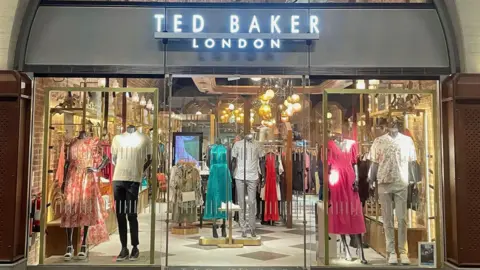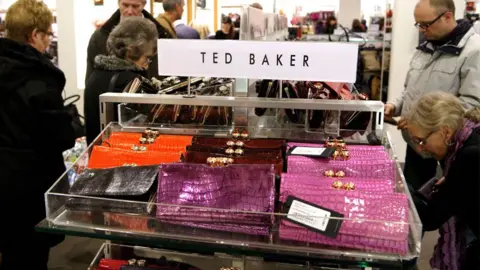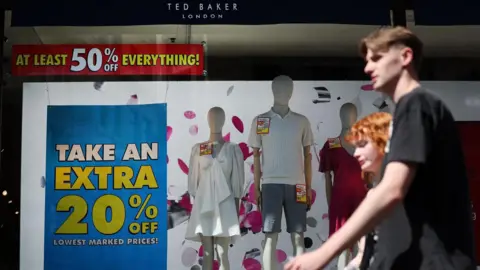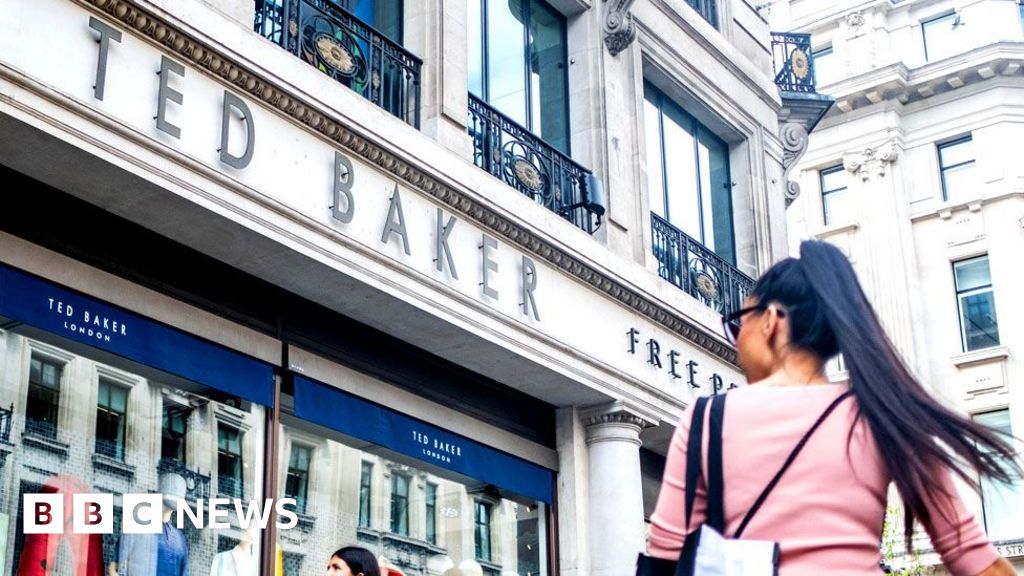 PA
PATed Baker – a fixture on UK High Streets since the late 1980s – is the latest casualty in the battle facing brick-and-mortar shops.
Known for its quirky advertising and signature floral prints, the brand has long been synonymous with British fashion and heritage.
But in recent years, it has faced huge challenges such as fierce competition, the shift to online shopping and the departure of its founder Ray Kelvin.
It is now set to close its remaining stores this week, putting more than 500 jobs at risk in the UK.
“This is an iconic brand with a signature design,” Diane Wehrle, retail expert and chief executive at Rendle Intelligence and Insights told the BBC.
During the brand’s 36-year history, it has been forced to compete with other, higher-end, High Street fashion outfits such as Reiss, Whistles, Mango and Massimo Dutti, “all of which have eaten away at its market share”, she noted.
It has had to fend off competition while facing huge overheads with some 1,000 employees across 46 stores, concessions and the online business, she said.
But its fatal error? A failure to evolve with consumer tastes.
 Alamy
Alamy‘Too tired’ for shoppers
“Over the last three decades their signature floral design, whilst iconic, simply became too tired for current consumers,” Ms Wehrle said.
According to Ms Wehrle, the brand’s “instability and poor media profile” has also been exacerbated by allegations of misconduct against its founder, further impacting sales.
Founder Ray Kelvin stepped down as chief executive in March 2019 after allegations of inappropriate behaviour, which he denied.
His successor Lindsay Page and chairman David Bernstein then resigned in late 2019 after the firm issued a profit warning.
Ted Baker started out as a menswear brand in Glasgow in 1988. Eventually, it had set up shops all across the UK and in the United States, with licensing agreements in place for stores in cities in Asia and the Middle East.
Danni Hewson, head of financial analysis at AJ Bell, told the BBC that Ted Baker achieved massive success in the nineties and noughties, by creating highly sought-after product for special occasions.
“Teenage boys bought their first suits for prom, twenty-something women picked up signature florals to wear at friend’s wedding and Christmas stockings were packed full of branded fragrances and lotions,” she said.
But she suggests its charm began to fade as its footprint expanded, and once consumers recognised in lockdown that they could opt for athleisure instead of being “suited and booted”, it struggled to stand out.
“Retail is brutal and fashion retail particularly so,” she said.
“What strikes a chord with shoppers one season might be off key the next and social media has made being ‘on trend’ even more important”.
Plenty of other names have seen similar struggles. Although the likes of Karen Millen and Coast still exist as part of bigger online stables, they don’t have the same brand recognition they once did.
Susannah Streeter, head of money and markets at Hargreaves Lansdown, said that while bigger operations like Next and M&S were able to “switch focus” to establish digital channels and more laid-back ranges, “Ted Baker floundered as the company failed to shift gears”.
She said that when Authentic Brands Group snapped up Ted Baker in 2022, there were “high hopes of a revival, but the investment needed to rejuvenate the brand didn’t materialise”.
The cost-of-living squeeze has also squeezed customers’ budgets in another blow for brands positioning themselves in the middle of the market.
 EPA
EPAThe firm which ran Ted Baker’s UK stores, No Ordinary Designer Label (NODL), fell into administration in March this year.
US firm Authentic Brands Group owns the intellectual property for Ted Baker, while NODL was the holding company for the brand in the UK.
When NODL collapsed, Authentic said the “damage done” during a tie-up with another firm was “too much to overcome”.
Authentic has been in talks with other retailers about a possible licensing partnership for the brand.
However, reports suggest these talks have stalled and so for now the future of the Ted Baker brand remains in the balance.


